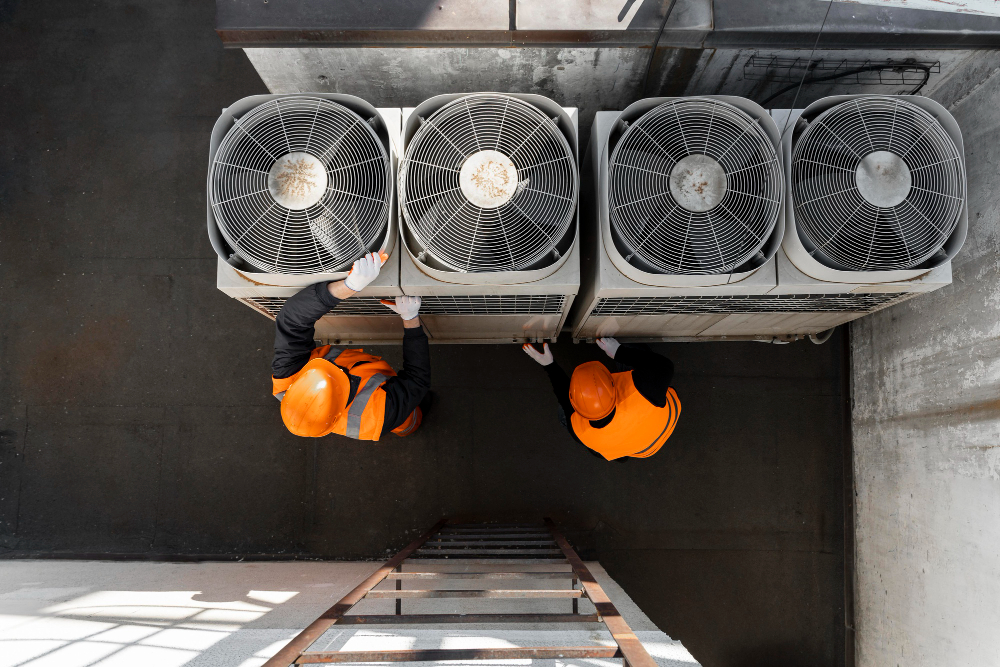Common HVAC Problems and How to Avoid Them

Whether you're a homeowner or a business proprietor in Florida, keeping your HVAC system running smoothly is essential. With Florida's demanding climate, a fully functional HVAC system ensures comfort and energy efficiency. However, like any system, HVAC units are prone to issues that can disrupt their performance. Knowing what these problems are and how to prevent them can save you time, money, and inconvenience. In this comprehensive guide, we'll explore some of the most common HVAC problems and how to avoid them. And if you're in need of quality HVAC supplies in Florida, remember to contact Discount Air Supply for expert advice and products.
The Importance of Regular Maintenance
Before we get into specific problems, it's crucial to understand the role of regular maintenance in preventing HVAC issues. Just as regular physical check-ups are vital for our health, routine maintenance is key to keeping an HVAC system in top condition. Here's why:
- Increased Efficiency: Regular maintenance can enhance the efficiency of your HVAC system, resulting in lower energy bills.
- Extended Lifespan: By addressing small issues before they become major ones, you can prolong the life of your HVAC unit.
- Improved Air Quality: A well-maintained system ensures better indoor air quality by reducing allergens and pollutants.
Common HVAC Problems & How to Avoid Them
1. Dirty Filters
One of the simplest yet most overlooked issues with HVAC systems is dirty filters. Over time, filters become clogged with dust, dirt, and debris, restricting airflow and forcing the system to work harder. This not only reduces efficiency but can also lead to overheating and damage.
How to Avoid:
- Replace or clean filters every 1-3 months, depending on usage and filter type.
- Check filters regularly, especially during peak seasons.
2. Refrigerant Leaks
Refrigerant is critical to the cooling process of an HVAC system. If your unit is low on refrigerant, it either means there's a leak or it was undercharged at installation. Refrigerant leaks can lead to reduced cooling capacity and increased energy consumption.
How to Avoid:
- Schedule annual HVAC inspections with a professional to check for and repair leaks.
- Ensure proper refrigerant charge during installation.
3. Thermostat Malfunctions
A malfunctioning thermostat can cause the temperature to be off, leading to discomfort and wasted energy. Problems can arise from faulty wiring, dead batteries, or outdated thermostats.
How to Avoid:
- Replace thermostat batteries regularly.
- Upgrade to a programmable or smart thermostat for better control and efficiency.
- Have an HVAC technician check the wiring and calibration during routine maintenance.
4. Drainage Problems
HVAC systems generate condensation, which needs to be drained away properly. If the condensate drain line becomes clogged, it can lead to water damage and mold growth.
How to Avoid:
- Clean the condensate drain line regularly.
- Check for blockages and ensure proper drainage.
5. Pilot or Ignition Problems
For gas-powered HVAC systems, issues with the pilot light or ignition can prevent the system from heating. This can be caused by a dirty pilot, faulty ignition sensor, or gas supply issues.
How to Avoid:
- Regularly clean the pilot and ignition components.
- Check gas supply and connections for any problems.
- Have a professional inspect the ignition system annually.
6. Mechanical Wear and Tear
Over time, parts like belts, bearings, and motors can wear out, leading to reduced performance or breakdowns. These issues can cause strange noises and decreased efficiency.
How to Avoid:
- Include mechanical components in your maintenance checks.
- Replace worn-out parts promptly to prevent further damage.
Seasonal Tips for Florida
In Florida, your HVAC system faces unique challenges due to the climate. Here are some seasonal tips to ensure optimal performance:
- Spring/Summer:
- Schedule an HVAC tune-up before the heat kicks in.
- Check and clean outdoor units to ensure unobstructed airflow.
- Use ceiling fans to help circulate cool air and reduce HVAC strain.
- Fall/Winter:
- Clear the area around outdoor units of debris and leaves.
- Test the heating function before the temperatures drop.
- Adjust your thermostat settings for energy efficiency.
When to Contact Professionals
While many minor issues can be managed with regular maintenance, some situations require professional intervention:
- Persistent Issues: If problems persist despite routine maintenance, it's time to call a professional.
- Complex Repairs: Refrigerant leaks, electrical issues, and major mechanical repairs should be handled by experienced technicians.
- System Replacement: When considering an upgrade or replacement, consult professionals to ensure you choose the right system for your needs.
Conclusion
By staying vigilant and proactive with your HVAC system, you can prevent many common problems and enjoy uninterrupted comfort in your home or business. For those residing in Florida, having access to reliable HVAC supplies is crucial. That's where Discount Air Supply comes in. Whether you're in need of filters, parts, or complete HVAC units, we offer a wide range of high-quality products to keep your system running smoothly.
If you're considering HVAC supplies in Florida or need expert advice, don't hesitate to contact Discount Air Supply today. We’re here to help you maintain a comfortable and efficient environment all year round.